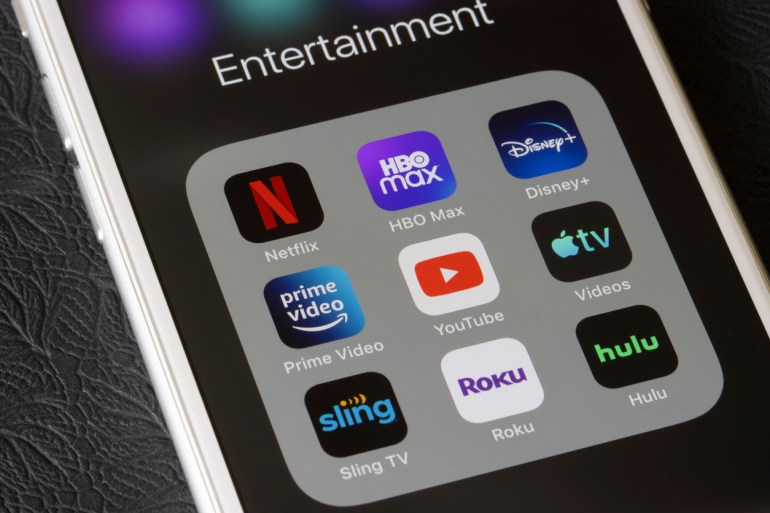Both Amazon and Netflix have welcomed the prospect of consulting with the Federal Government on a formal investment obligation in their National Cultural Policy submissions, but called for a “broad and flexible” definition of Australian content.
Nine-owned streaming service Stan and Foxtel, owner of Binge, have meanwhile stressed how they should be excluded from any obligation in order to avoid duplicitous regulation.
It comes after the screen industry guilds reiterated the need for major streaming platforms to reinvest 20 per cent of their Australian revenue in local commissions, with Screen Producers Australia identifying the policy setting as the “highest priority” for its members.
As with their response to the media reform green paper last year, Stan, Netflix, and Amazon highlighted their contribution to local content, citing data from the Australian Communications and Media Authority showing that in the 2020-21 financial year, the trio, along with Disney+, collectively invested $628 million on Australian and Australian-related content, including acquisitions, representing a 135 per cent increase on the previous year.
Netflix and Stan also took the opportunity to outline their respective partnerships with the Australian Children’s Television Foundation as an example of their commitment to the genre.
For Netflix, there is a need for a definition of Australian content investment that is “broad enough to stimulate production and distribution across all genres and flexible enough to reflect the changing ways in which content is being financed, produced, distributed and consumed”.
“The emerging interrelationship between content producers, broadcasters and
streaming entertainment companies is an important development in the content production ecosystem,” the submission argued.
“When Netflix partners on productions in Australia, we gain access to quality stories and talent and can bring our particular focus on audiences and exports.”
The streamer also called for the definition of Australian content to be set broadly to ensure “regulatory intervention does not threaten existing revenue streams to producers if certain types of Australian productions are excluded”, using the example of Stan’s The Tourist not qualifying as Australian content under the voluntary streaming reporting scheme.
Amazon Prime expressed the need for a similarly broad definition of Australian culture in its submission, noting that Australian audiences were at the forefront of how culture is “defined, consumed, and represented”.
“The National Cultural Policy should be designed to promote, support, and develop the innovative ways that culture is being created and expressed by and for Australians, so that producers can continue to tell authentic Australian stories to different Australian audiences,” it said.
In line with its submission to the green paper, the service has put out a renewed call for what it describes as “evidence-based policy decisions” in the wake of the 2021 Drama Report showing record-breaking levels of expenditure on drama production and the voluntary annual reporting scheme.
It has also suggested there should be a greater emphasis on addressing the skills and capacity shortages in the industry, rather than “reaching for regulatory levers to drive more investment into an already booming and stressed sector”.
Likewise, Stan calls attention to a “raft of publicly available data that makes it clear there is no market failure in relation to the delivery and availability of local content that would require policy intervention in the streaming sector” amid a “surging production market” which has led to shortages in the availability of production facilities and key crew.
If the government does end up introducing a content obligation, Stan says, it would need to apply to new entrants in the local streaming market controlled by large international companies, while carrying a carefully considered definition of Australian content and allowing for acquisitions to be counted towards the requirement.
The Australian-owned service maintains its long-held belief that given it is operating as part of a commercial free-to-air network already subject to content obligations, there is cause for exclusion from further requirements so as to avoid duplication of regulatory obligations.
Foxtel, which is subject to the New Eligible Drama Expenditure scheme, makes the same case within its submission, also outlining some of the additional challenges it is facing, including competing with the direct-to-consumer strategies of major studios and purchasing power of streaming companies; rising prices for content due to increasing competition; global inflationary pressures affecting internal costs and consumer confidence; and declines in the traditional live television ad market as content moves to online platforms.
The company goes on to describe the introduction of an Australian content obligation on its SVOD services as “unwarranted” and having the potential to “amplify the existing regulatory distortions between Foxtel as a local provider, and its international competitors”.
The Foxtel, Netflix, Amazon, and Stan submissions are available to view from the Arts Department website.


